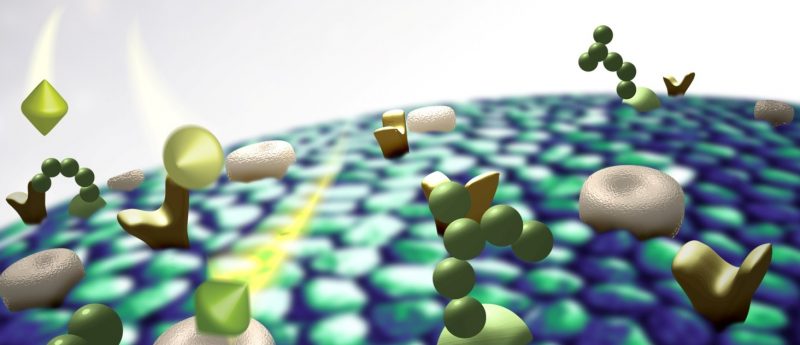Potential new system to deliver regenerative therapeutics into cells

A team of experts from The University of Nottingham (UK), also working with the UKRMP, have generated a peptide-based system for delivery of cell-penetrating peptides that is efficient and could be targeted to specific cells, and therefore aid regenerative medicine applications.
At present, inefficient delivery of therapeutic molecules into cells by nontransgenic approaches for gene editing, directed differentiation and in vivo cell modulation is a roadblock to regenerative medicine development.
Researchers at the University of Nottingham (UK), who are also part of the UK’s Regenerative Medicine Platform (UKRMP), have developed a simple, protein-based system targeting the sugar coating of cells rather than the membrane’s proteins to deliver therapeutic molecules into cells at high doses that could allow the generation of a new class of potential drugs and therapies for a variety of diseases and disorders.
“In this study we show that we can directly and efficiently deliver a variety of therapeutic molecules attached to proteins that can control the gene expression of stem cells and programme their fate,” explained Dr James Dixon, from the University of Nottingham’s School of Pharmacy.
Targeting the sugars or heparan sulphates rather than proteins of the cell membrane is a novel drug delivery approach that could allow more specific cell targeting and therefore reduce off-target effects, and be more highly controlled and efficient. Furthermore, the sugar-targeting protein can be engineered to target specific cells and therefore potentially specific diseases.
Dixon commented: “We’ve taken natural molecules that have evolved to interact with cells in this way and exploited their activity to design our technology. There are more versions of this sugar molecule (heparan sulphate) than the complexity of the human genome. Some types are only present on diseased cells, some on healthy tissue, some specifically in the heart, some in brain… If we can target these specific types we have the potential to create a very powerful therapy that could deliver therapeutic molecules and drugs directly to where we want them in the body, and very efficiently.”
In their work with the UKRMP, the team is working to develop acellular smart materials for therapeutic delivery, ultimately to control the fate of cells directly in the human body. “Controlling stem cells in this way may be important, not just for regenerative medicine, but also for drug safety, the reduction of animal testing and personalised medicine approaches,” Dixon explained. “We hope technologies like this and those developed with our collaborators in the UKRMP will allow us to build functional tissues from stem cells as replacements for diseased organs. Hopefully this work will also allow us to make drugs safer and smarter by specifically designing them for individual patients and removing the use of animals by testing them on patient tissue engineered in the lab.”
The technology has been licensed to a University of Nottingham spin-out company, Locate therapeutics Ltd, with the hope that this fundamental research can be translated quickly to the clinic. Future work will include analyzing the safety, stability and activity of this approach in vitro, before application in humans can be considered.
Sources: http://medicalxpress.com/news/2016-01-cellular-sweet-spotnew-delivery-regenerative.html; Dixon JE, Osmana G, Morrisa GE et al. Highly efficient delivery of functional cargoes by the synergistic effect of GAG binding motifs and cell-penetrating peptides. Proc. Natl Acad. Sci. USA doi:10.1073/pnas.1518634113 (2016).